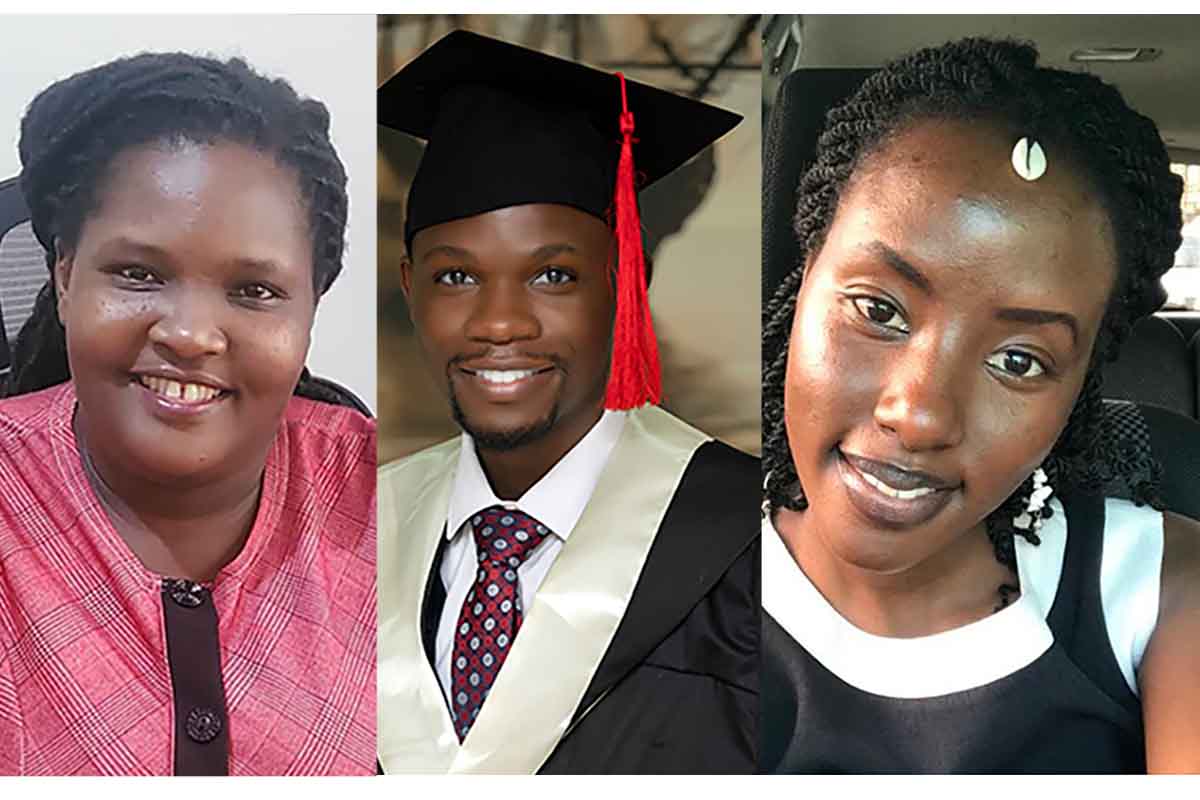Ted Rogers case competitors aim to change lives in Uganda for victims of gender-based violence

A Ted Rogers School case competition spurred anonymous investment in a framework that could help prevent gender-based violence in southeast Africa for a Ugandan team who participated in a competition earlier this year.
In March, four Ugandan students from Makerere University in Kampala took part in the Reimagining Women in Leadership: Virtual Conference & MBA Case Competition. The event brought together MBA candidates and industry professionals to exchange ideas on socially relevant business issues related to women in leadership. This year, teams from the United States, Canada, India, and Uganda took part in the case competition.
Written by Donna Smith, then graduate program director of the MBA program, and colleague Ron Babin, the case was called “Women and Remote Work: Fearless or Fear?” and explored how intimate partner violence increases when women work remotely.
Teams were tasked with identifying gender-based violence in their communities and developing a program to identify signs of intimate partner violence and resources to help through their workplace. The case was written so that it could be solved in any jurisdiction, Smith explained.
Community Action for Gender Equality
Makerere University MBA students Simon Peter Rwakahangi, Olivia Nahwera, Sheila Tuti and Susan Alero’s solution "Community Action for Gender Equality" (CAGE) was a unique approach to address gender-based violence in Uganda.
“Our solution to the case was based on the framework / model that encourages partnership with NGOs ground-operating to combat gender-based violence effects in their different communities,” Rwakahangi explained.
CAGE aims to empower and mobilize communities, to develop tailored education programs to promote gender equality and awareness campaigns. The model would engage men and boys as allies in promoting gender equality and preventing violence, and encourage male community leaders to publicly endorse gender equality, speak out against violence, and champion women's rights. CAGE would establish safe spaces within communities for survivors to access support, counselling, legal and medical services, as well as a network of healthcare, legal, counselling and other community groups to provide support. It would develop economic programs and vocational training to promote financial independence to reduce vulnerability to gender-based violence, and advocate for responsive policies.
"By fostering empowerment, education, support services, economic opportunities and policy advocacy, this model aims to create lasting change, shift societal norms and promote gender equality at the grassroots level," Rwakahangi said.
When the team dug into the research around gender-based violence in their country, they were shocked that there was a problem that needed to be addressed, Tuti said.
“According to national statistics from Uganda, 30 per cent of women who have ever been intimate partners and are between the ages of 15 and 49 have experienced physical and/or sexual intimate partner abuse during the past year,” she said. “Throughout the pandemic and COVID-19 lockdown, this number more than doubled.”
Competing from seven hours away
It was a team effort to present in the Ted Rogers School competition and required a lot of preparation. Each team member worked in different capacities.
Nahwera was the team leader and coordinated and managed tasks. Alero researched websites, reports, and articles and compiled data, which informed the team of the prevalence and control measures of gender-based violence in Uganda. Tuti was the contact for the NGOs, setting up meetings, taking minutes and researching frameworks. Rwakahangi identified NGOs that dealt with gender-based violence in their jurisdiction and developed the CAGE model.
All of them dealt with the challenge of a seven-hour time difference.
“It was challenging to plan and collaborate on meetings across time zones because we had to choose times that worked for all parties, which frequently interfered with our daily routines,” Rwakahangi said.
Despite the challenges, the team succeeded with efficient communication, careful planning, flexible scheduling and support from Dr. Vincent Bagire and Dr. Laura Orobia from Makerere University and case coach Nadia Barbosa and mentors Kristina Milbourn and David Miller from Toronto Metropolitan University.
In the final round, their case was put before judges Andrea Gunraj, vice president of public engagement at The Canadian Women's Foundation, Matt Dallen, vice president of learning and development at Aritzia, and Peggy Moss, director of the Canadian Women’s Foundation Board.
Ultimately, the Makerere University team placed in the top three.
But, then, two anonymous donors stepped up to fund their CAGE model.
"When this team presented I had tears in my eyes. The situation in Uganda is very severe,” Smith said. “Perhaps this motivated the donor. I delivered the amazing news via Zoom to the team. There was silence then bursts of joy. They are exceptional human beings."
And now, the team’s plan is to execute the solution over the next 24 months.
“We plan to implement this project in September 2023 in four regions of Uganda, selecting one NGO in each region,” Alero said. “We aim to create gender-based violence solutions in communities where the need for it is higher, places where access to basic needs is lower, access to counselling is lower and poverty is high.”
In the months since the Ted Rogers School case competition, the Ugandan team members have participated in various GBV events hosted by other NGOs, and say they have seen firsthand how the process works.
“Writing a solution is one thing; putting it into practice is quite another,” said Nahwera. “This involvement has given us the chance to train as well as get acquainted with the system until we're ready to carry out our plan.”